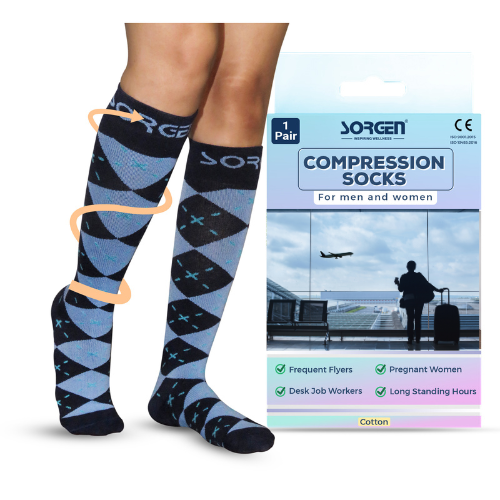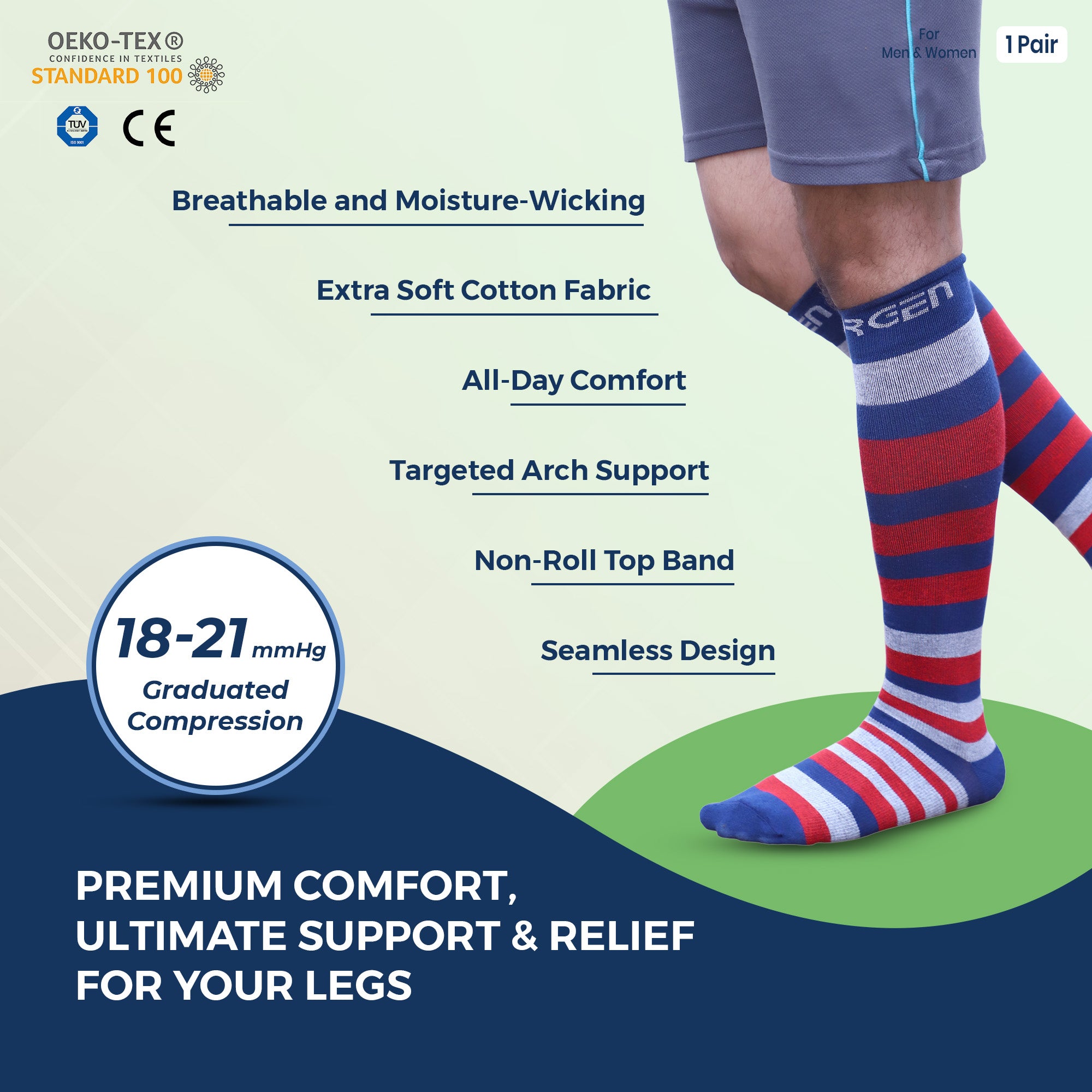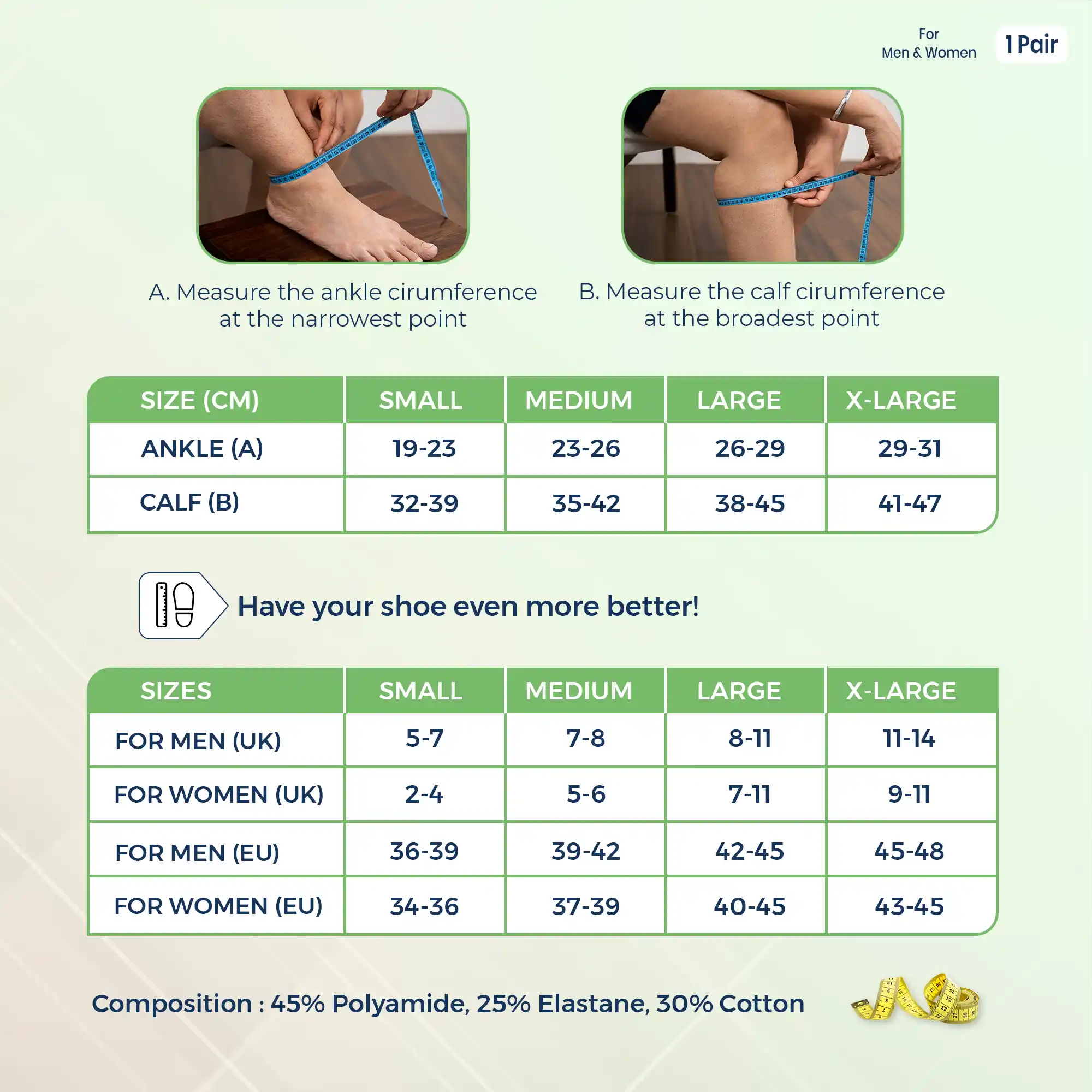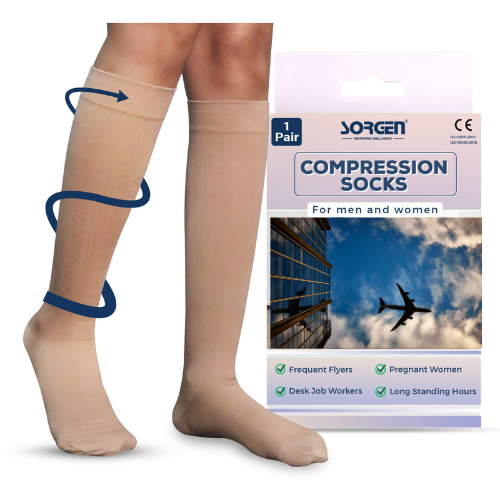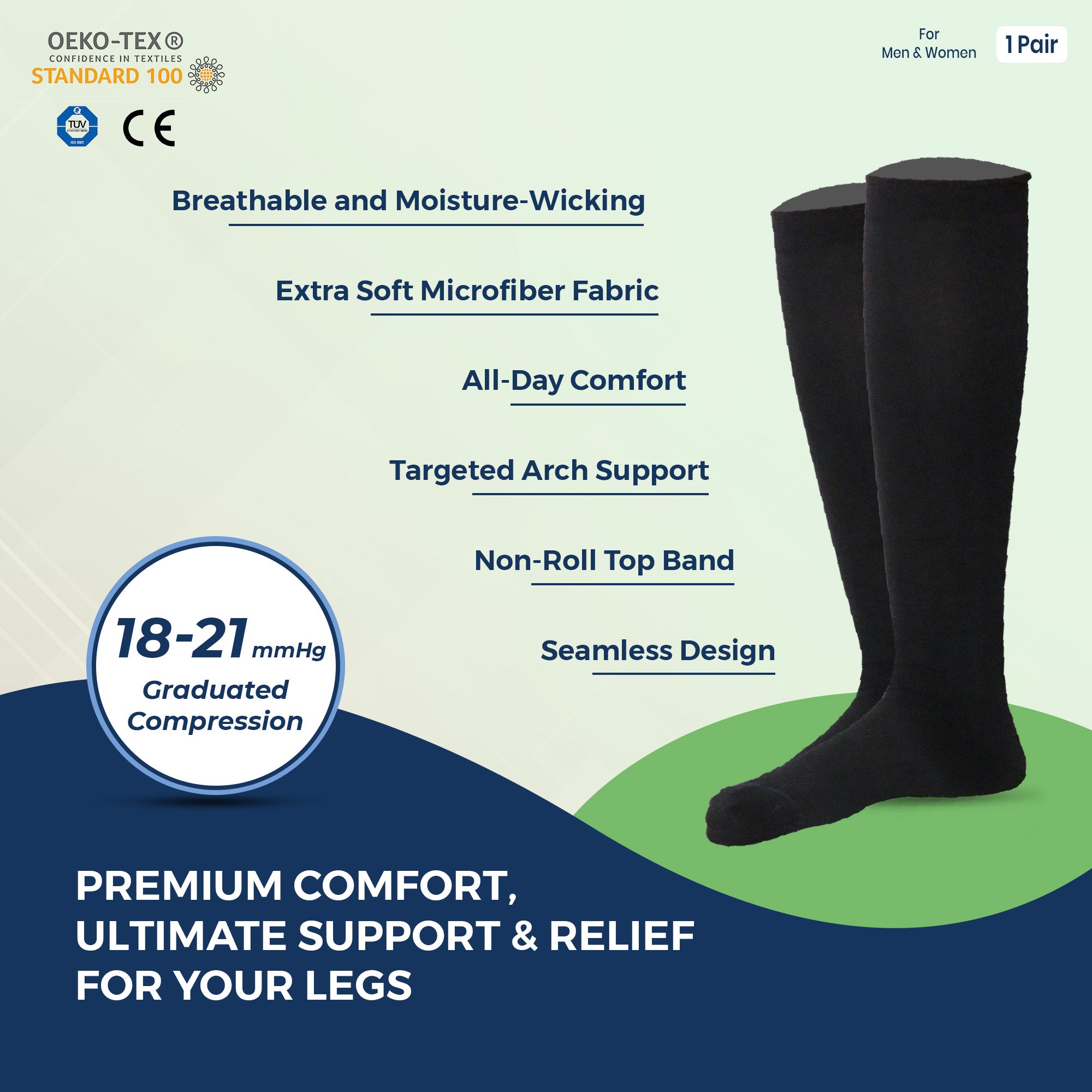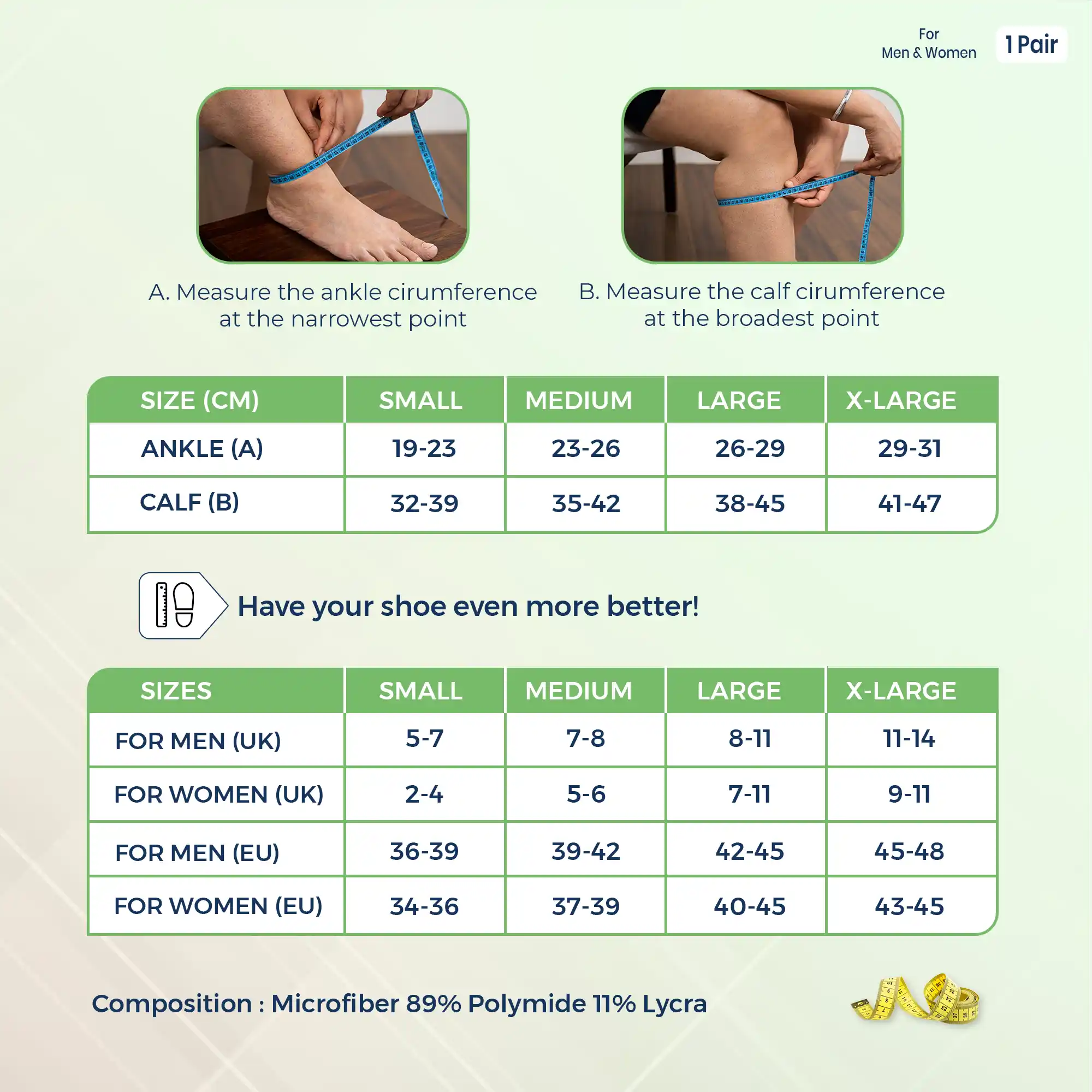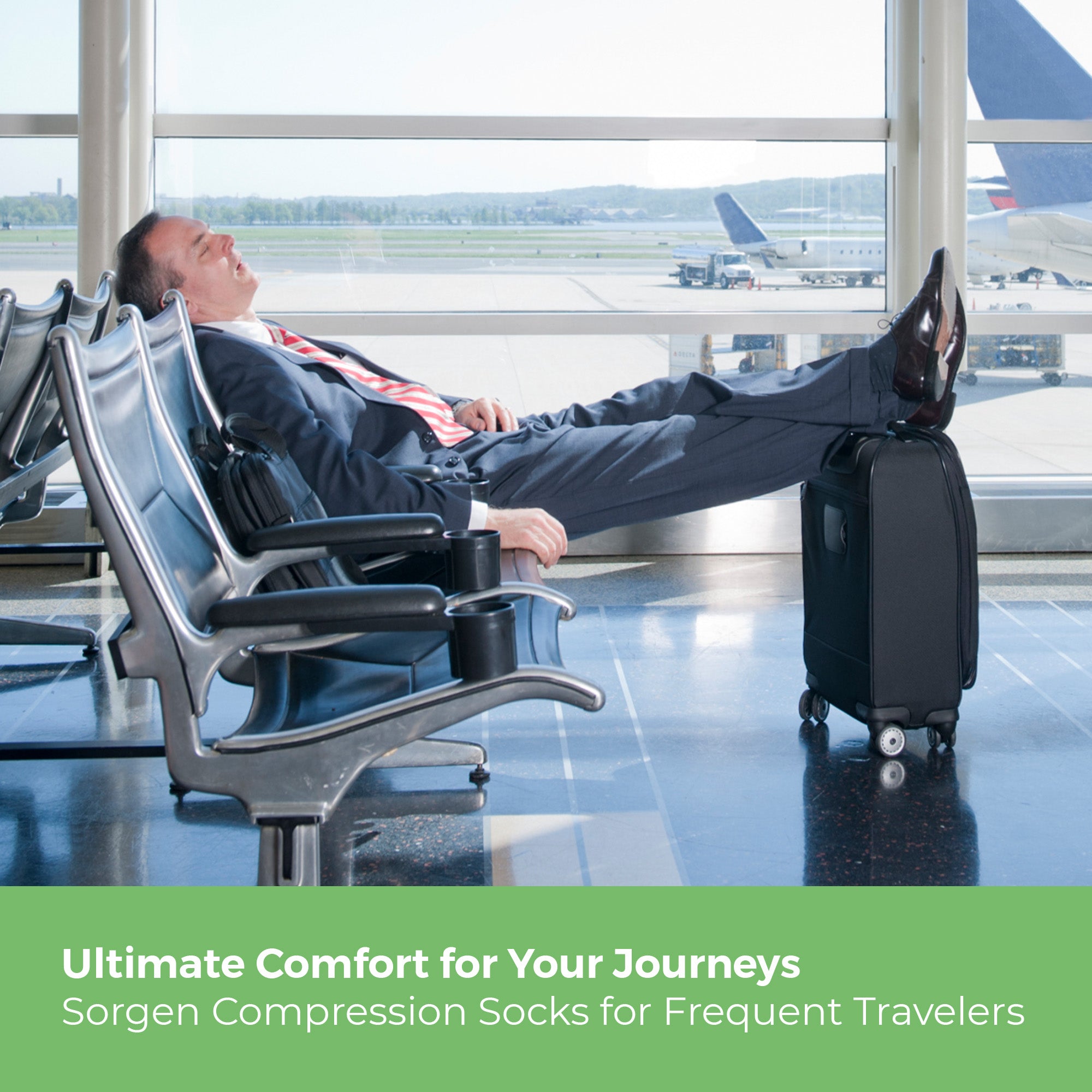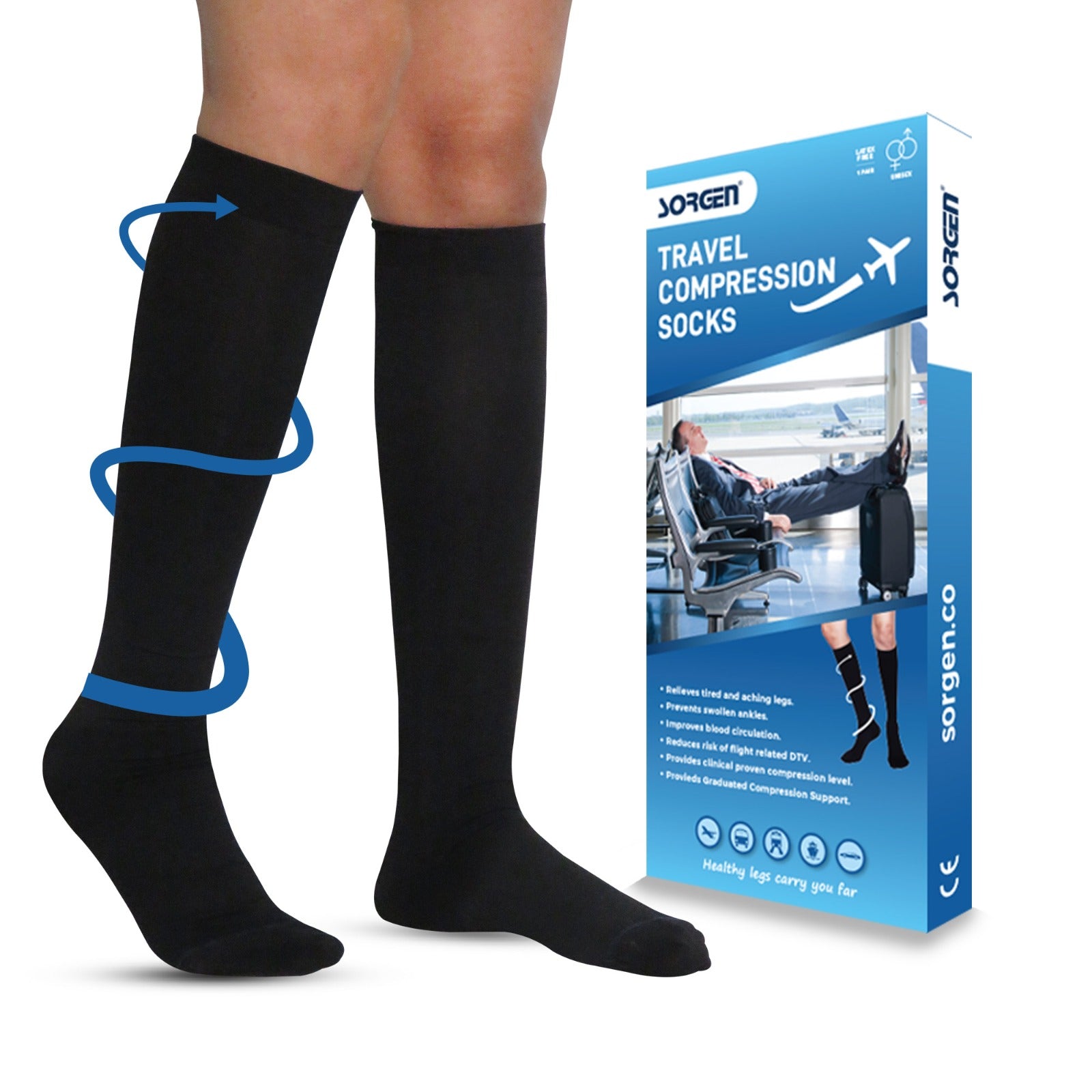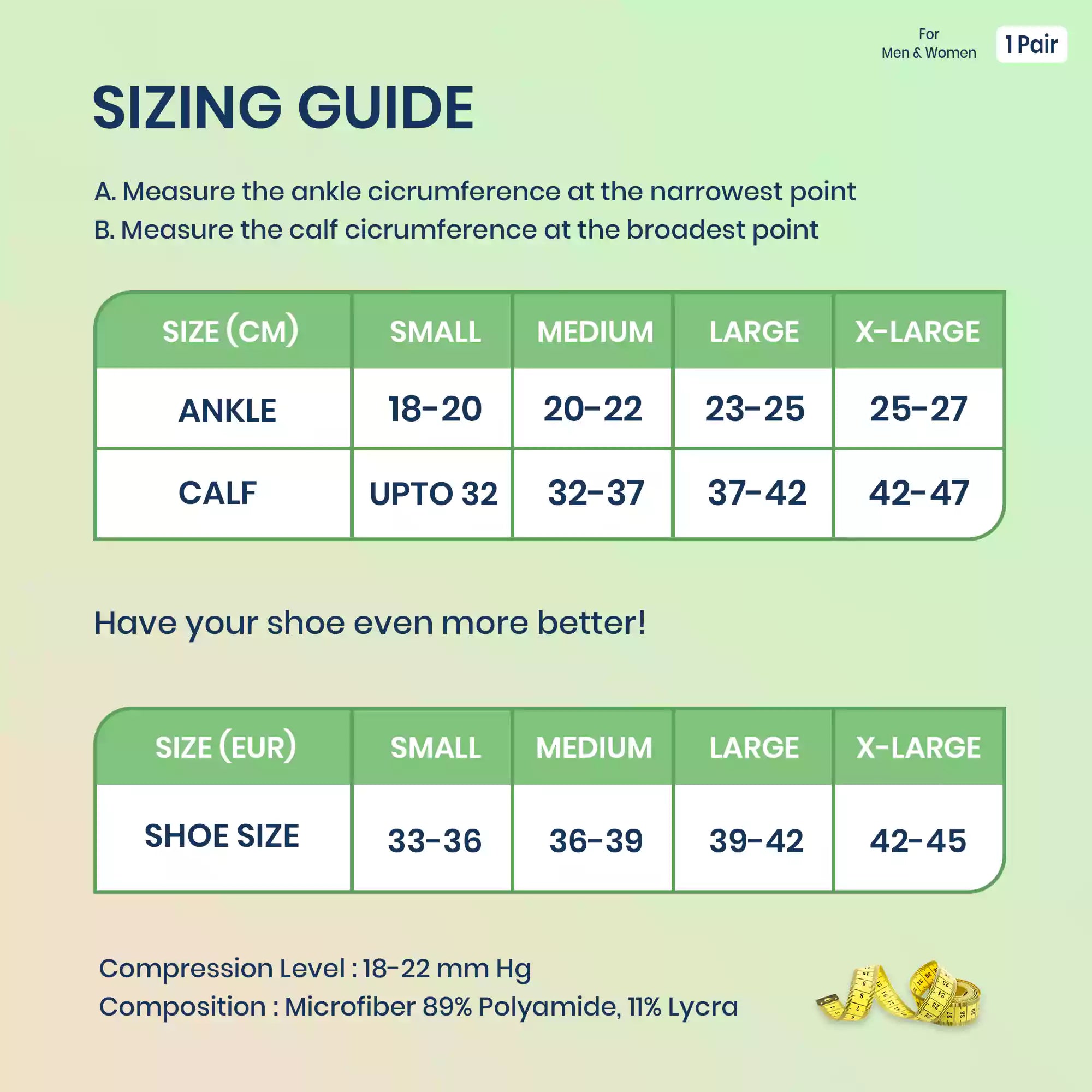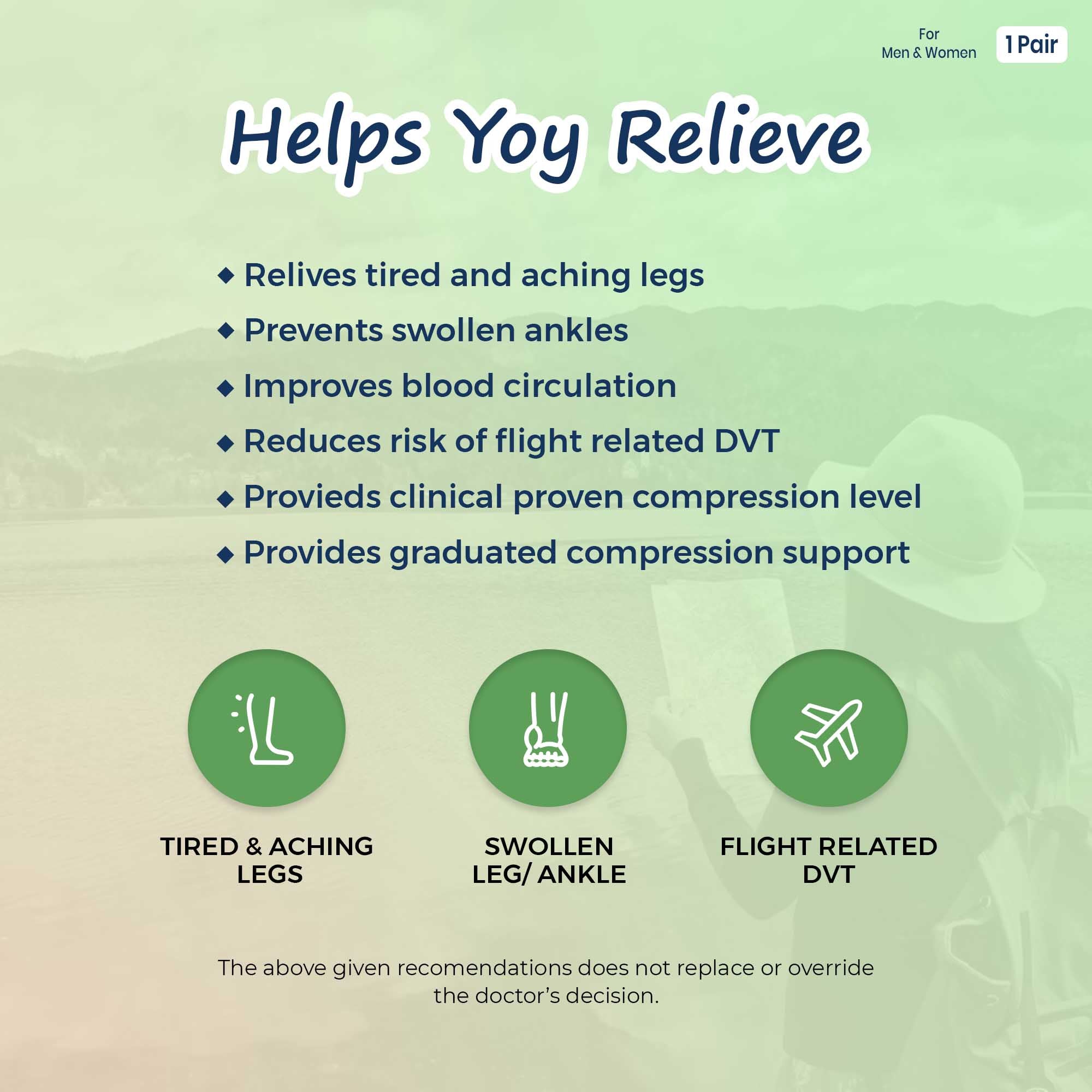Heading out for a new adventure?
Whether you're planning to soak up some sun on a pristine beach or lose yourself in the bustling streets of a vibrant city, every journey begins with the inevitable: travel. This could mean enduring a lengthy flight, spending a full day on the road, or clocking hours on a train. But there’s a simple, effective step you can take to ensure your health and comfort during these long hauls: by wearing Sorgen compression socks.
The Importance of Compression Socks During Travel
Long periods of sitting—especially in the confined spaces of a plane, car, or train—pose several health risks, including the potential for blood clots, especially if your travel time exceeds four hours. Prolonged travel can significantly increase your risk of developing these clots. Compression socks, like those from Sorgen, actively support circulation, drastically reducing this risk and promoting overall leg health.
Imagine stepping off your flight with ankles the same size as when you boarded. Sorgen's compression socks are a game-changer for those long travel days and when you're sprinting across airport terminals.
Why Choose Compression Socks for Long Flights?
Air travel, in particular, can lead to discomfort in the legs, swollen ankles, or even more severe conditions such as deep vein thrombosis (DVT). Sorgen compression socks offer relief by providing graduated pressure that supports blood flow, a simple yet effective precaution that ensures the well-being of your legs no matter where you're headed.
"I’ve trusted Sorgen compression socks not only for flights but also for long car journeys. Their blend of style, comfort, and functionality supports my active lifestyle perfectly." — Sanjay Sharma, Frequent Traveller.
Selecting the Right Compression Socks for Air Travel
What type of compression socks are best for flying? Graduated compression socks are ideal as they apply maximum pressure at the ankle, decreasing towards the knee. This design helps propel blood back up the leg, preventing swelling and clotting. Opt for knee-high socks that provide 18-21 mm Hg of compression to reap the full benefits.
When should you wear compression socks? It’s advisable to don your Sorgen compression socks well before boarding or driving. Safe for continuous wear over 16 hours, you can put them on without concerns about timing, enjoying sustained comfort from start to finish.
Understanding Compression Levels
What compression level is necessary for travel? While 18-21 mmHg is sufficient for most travelers, those with a history of DVT or known circulatory problems might find 23-32 mmHg more beneficial and comfortable. Sorgen offers a range of compression levels to suit various health needs and preferences. It is better to consult your doctor if you have a prior history of DVT or any leg circulation condition.
Staying Active During Travel
Staying mobile and engaging in simple exercises during travel can further enhance circulatory health. We have a video that outlines useful exercises you can do while seated to keep the blood flowing and reduce the risk of DVT.
Pack Sorgen Compression Socks for Your Next Trip
Don't let travel-related health risks put a damper on your adventure. Equip yourself with Sorgen compression socks, and travel with confidence and comfort. Whether you're navigating airport terminals or cruising along the highway, Sorgen will ensure your journey is as healthy as it is exciting.
Check out our selection of travel compression socks and make sure to view our video on precautions against travel-related DVT for more information. With the right preparation, your next trip can be worry-free and full of enjoyable moments.

